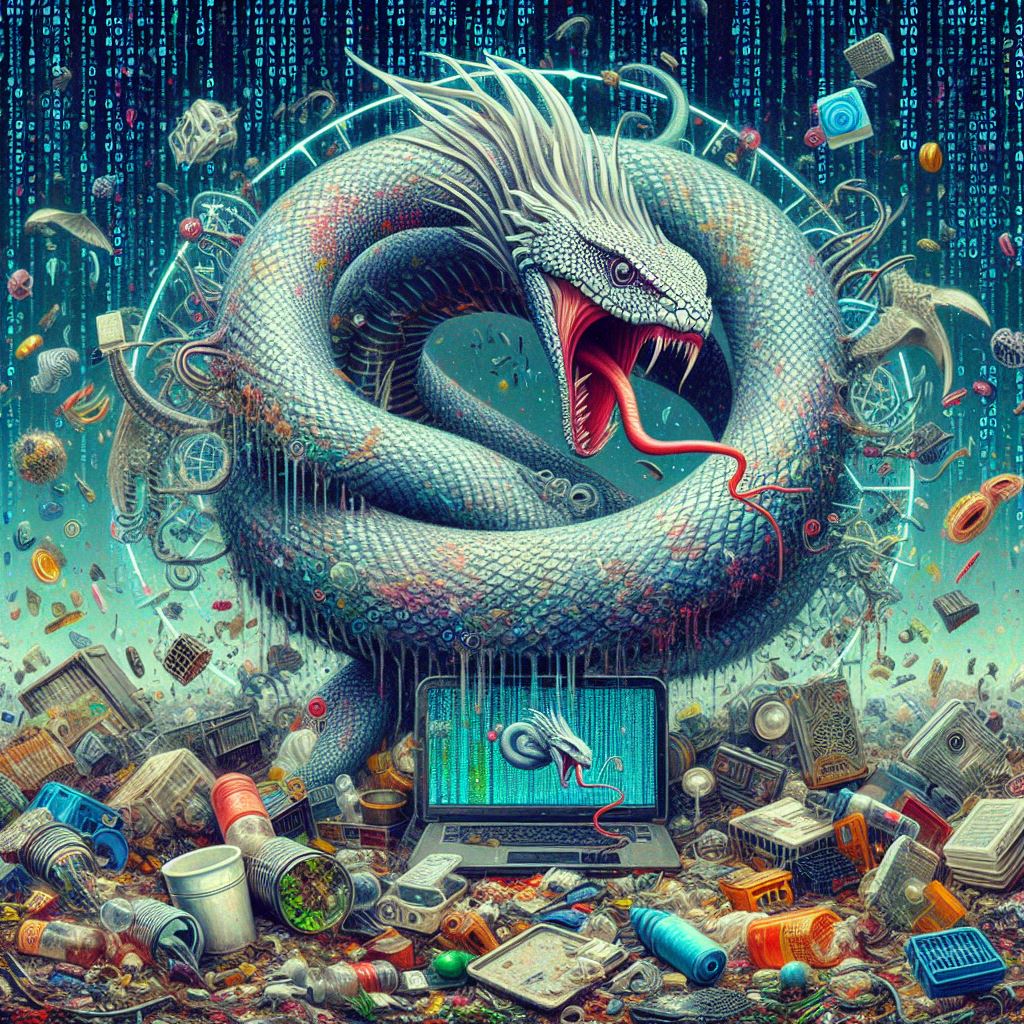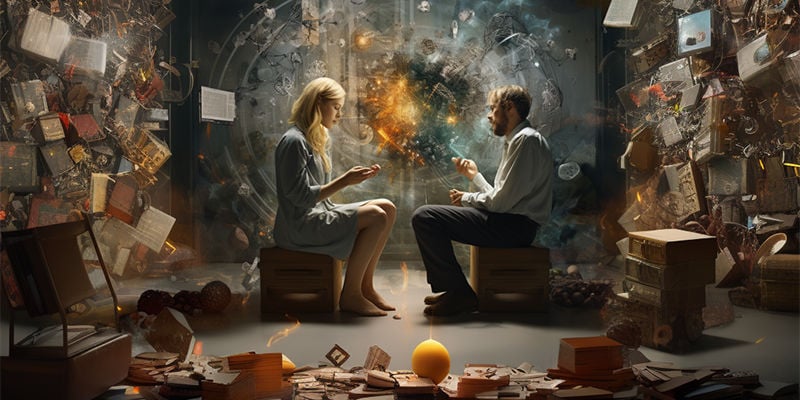When we obey the rules we unfailingly get nullified. This is always the way – it couldn’t possibly be any other way. Obeying the rules equals falling into the nullification trance. This is the con that we are always falling for – the oldest con-job in the world. It’s the oldest pitfall in the world and we keep falling into it. We are provided with a bunch of rules, which are apparently there for some important reason, and we follow them. We follow the guidelines because we have to; we adhere to the system because everyone else does; we obey the rules in all good faith and get neatly nullified as a result.
Once we have been nullified by obeying the rules then it is no easy matter to get back again. It doesn’t work the other way around. It is one thing to casually allow oneself to be nullified but it is quite another to return from this fate! No trap was ever harder to get out of than this, in fact. If I decide that I am going to disobey the rules (and do the opposite of what the rules says I should) then I am still obeying the rule. YES is obeying the rule just as much as NO is. To disobey a rule is still to obey it – I can’t get away from a rule by going against it, after all! I am being conditioned (or determined) by the rule in both cases; I am being nullified just as effectively either way.
What exactly does it mean to be ‘nullified’, though? What kind of a thing is this? Nullification is not part of our everyday vocabulary – we don’t ever hear anyone referring to this as a thing that can happen to us if we’re too unreflective or too blasé about life. This doesn’t mean that nullification isn’t a real thing however – it just means that everyone has already been nullified! It just means that when we have been nullified we have no capacity to know that this has actually happened to us. That’s part of the deal. To be nullified is (we might say) to be relegated to ‘the entropic basement level of existence’, which is actually not to exist at all. We might furthermore add that this state of state of maximized entropy (this state of ‘not existing’) does not itself exist, but that this does not in any way prevent us from being very effectively trapped in it.
This is a very curious thing – that we should be very effectively trapped in a state of non-existence that does not itself exist! What a situation to get into! On the face of it, we would think that this surely couldn’t happen. And yet the undeniable truth of the matter is that it happens all the time – it’s the default situation, it’s the statistical norm. It is the rule rather than the exception, so to speak. It’s where we all inevitably find ourselves when we are not making any conscious effort, when we’re not really paying attention. It’s where we inevitably find ourselves when we aren’t actually present, only we don’t ‘find it’ of course because we’d actually have to be present in ourselves for that…
To be present is to be ‘not automatically going along with the collection of rules that go to make up our situation’. It is to be independent of the rules or determinants that happen be operating in our local environment. Yet how can we know not to be going along with these rules when we don’t know anything else other than rules? How are we going to know about the possibility of ‘not obeying the rules’ when the rules are what tell us how to know everything? The ubiquitous thinking mind – which we rely on absolutely to tell us everything about what is going on – is itself no more than a collection of ‘taken-for granted rules’! Once this is understood it can be seen that ‘not going along with the rules’ is not such a straightforward thing after all. We don’t know that the rules are there in the first place, so gaining freedom from them naturally does not present itself as a possibility to us.
The point is that we think we’re already present. We couldn’t imagine for a second that we aren’t, we couldn’t imagine that our consciousness has been shoehorned into a box. We have zero capacity to perceive this. We’ve got nothing else to go on other than the rules that we’re taking for granted and so as far as we’re concerned there’s nothing amiss. We don’t see that we’re only ‘present according to the rules’ – we don’t know anything about the rules that we’re operating on the basis of and so of course we assume that we’re present in an unconditional way. We assume that there are no rules because we can’t see them, because we can’t see ourselves obeying them. We assume we’re not in a box because the box is invisible to us. We assume that we’re fully ‘present’ because the rules tell us that we are, because our mind tells us that we are…
Being present in a conditional way (i.e. ‘being present according to the rules’) doesn’t mean a thing however. Naturally a simulation passes itself off as being real, but the fact that a simulation is passing itself off as being real is hardly an argument to say that it must be. That would be like saying that a lie must be true because it faithfully claims to be so! The rules that tell us that we’re present (and that the reality they are creating is real) are themselves not present, are themselves not real. They aren’t real and so they can’t bestow reality. Rules are of course mere formalisms, mere conventions. They are – we could say – ‘abstractions from the Universal flux’. They are static snapshots of the undivided movement that is the universe and as such are not part of the real world at all. They are an ‘infinitely skinny slice of the whole’, a slice with zero actual width. So as soon as we establish some sort of status (or identity) for ourselves on the basis of an arbitrary collection of rules we have ensured our own unreality, our own nullity.
A rule doesn’t really produce anything. It may seem strange to say this since we all know that a set of rules can give rise to a structure (or ‘formal system’) that can effectively pretend to be a real thing. The thing is however that logical structures or formal systems do not actually contain any information – they are representations of reality rather than being real themselves. They are essentially ‘hollow constructs’ and no amount of detail can make up for this hollowness. Formal systems cannot contain information – the definition of information is after all ‘some sort of change that was not specified in advance by a rule’ so the suggestion that something could happen in a logical system that was not already prefigured by the rules that make up that system is clearly ridiculous! A rule cannot give rise to information (i.e. unpredictable change) because then it would no longer be a rule.
Rules only ever produce redundancy, which is just another way of saying that they don’t produce anything. Or rather we should say that there is the appearance of something being produced, whilst actually this is simply not the case. There is the appearance of change whilst really there is no change. So when our pragmatic reality is determined by rules (so that rules are all we know) the only type of change or movement taking place is the type that isn’t really change or movement at all. This isn’t quite enough in itself to constitute a ‘perfect trap’ however – what makes this situation into a perfect trap is the way in which when our consciousness has been conditioned by the rules we not only have no possibility of seeing these rules, we also have no way of seeing that the type of change that is predicated upon rules is no change at all. We have no capacity to ‘spot the redundancy’ in other words and so we find ourselves in a world made up of ‘apparent positive outcomes versus apparent negative outcomes’. We find ourselves in a world of ‘win versus lose’, ‘right versus wrong’, success versus failure’. We find ourselves in the polar world.
The thing about the world of ‘win versus lose’ is of course that it is utterly compulsive. Conditioned reality is a game and the whole point of a game is that when we’re in it we just can’t help playing it! Not playing the game is just as much the game as playing it is. Deciding not to play the game is a move in the game. Saying that you don’t want to play is playing the game, so straightway here we can see the absolutely flawless trap that we are in as a result of unconsciously obeying the rules. If saying NO to the game is just as much playing the game as saying YES to it is then how are we ever going to move beyond it? The game is made up of pairs of complementary opposites – advance and retreat, advantage and disadvantage, win and lose, YES and NO and no matter which one of the pair we go for we aren’t going to be able to exit the game. And the entrapping thing is that when we’re caught up in the game we have no capacity to know of any other possibilities than these familiar complementary pairs of opposites.
To be ‘caught up in a game’ is to be stuck in the entropic basement level of existence, which – as we have said – isn’t really existence at all. When we’re playing the game (and ‘playing the game’ necessarily means ‘not knowing that we’re playing a game’) then the entropy content of the system is at a maximum. [Or we could say that being stuck in conditioned reality without knowing that we are then ‘the entropy or the system is at a maximum’.] The entropy of the system is at a maximum because we can’t see that the PLUS term is the same as the MINUS term, because we can’t see that winning is no different to losing. This is what ‘playing a game’ is all about, after all – it is about believing that winning is not the same as losing.
Entropy is what games are all about! Without entropy there is no game. Entropy is not seeing the trick. Entropy means that we see the positive outcome as being a very different kettle of fish to the negative outcome and it is the deluded perception that drives our activity in the game. We want the one and we don’t want the other and so there’s no rest to be had until we’ve secured the former and locked and bolted the door against the latter. This however means that we’re never going to rest at all since acting so as to secure the positive outcome brings the negative outcome down upon us as surely as the back half of a bus follows the front half as it come down the road! Actually, what we’re so very determinedly trying to do is utterly and profoundly meaningless…
We can’t ever have any peace because the situation that we’re trying to secure for ourselves is a complete impossibility and yet at the same time we have absolutely zero choice about trying to achieve it! As we have already said, this is implicit in the very nature of games – that we don’t have the option of not playing them. As James Carse says, if we are to play a finite game then we first have to veil from ourselves the freedom that we have not to play it. A game contains zero freedom and this lack of freedom is – as we have said – what drives the game. We have to try to turn the minus into a plus, and even when we have succeeded in doing this the relief or gratification we obtain as a result is only a ‘token’ kind of a thing – its just a gimmick. Our victories are hollow just as our defeats are. After all, the whole game, the whole structure, the whole system is hollow and so could we expect anything else?
This really is the most tremendously bizarre kind of a situation. What we are saying here is that a game of where we are absolutely compelled to do (or try to do) something that is profoundly meaningless, profoundly futile and where we are – at the same time – rendered absolutely incapable of seeing that what we are doing / trying to do is meaningless / futile. This set-up therefore means that we are doomed to keep on trying to achieve not only something that we never can achieve, but also that we keep on trying to do something that is profoundly and utterly meaningless (or nonsensical) anyway! How could there ever be a more ridiculous situation than this? Being stuck in conditioned (or mind-created) reality means – not to beat about the bush too much – that we are doomed to keep on repeating the same profoundly futile and meaningless manoeuvre forever and ever! This is what we get for ‘obeying the rules’! This is what ‘being unconscious’ means.
What keeps the game rolling on and on forever is the fact that the entropy content of the system is at a maximum. Saying that that the entropy of the system is at a maximum is another way of saying that we are ‘unfree without being able to see that we are unfree’. What is essentially happening is that we are being totally controlled, totally determined, by the system without us being able to see that this is the case. It’s a ‘complete’ deception. We are being controlled moreover to do something that is absolutely meaningless, absolutely futile whilst at the same time [1] We believe that what we are doing is eminently sensible, eminently realistic / realizable, and [2] We understand ourselves to be engaged in this task of our own free will. We couldn’t have things more back-to-front or skew-ways in other words and this is what it means to be ‘nullified’.
When we are being totally controlled / determined by the logical system whilst at the same time imaging that we are not being controlled (i.e. whilst living some kind of fantasy life in which we are doing whatever we are doing because we want to, because it is ‘our own idea’ to do so) then what is this saying about us? The answer to this question couldn’t be clearer – if I have zero autonomy whilst falsely imagining that I do then there isn’t really an ‘I’. If the nominal ‘I’ is only a puppet controlled by external mechanical forces then there is no ‘I’, no individuality. The ‘I’ or individuality is a fiction created by the machine; there is no one there – we just imagine that there is. The cheap illusion is that we are there, the cheap illusion is that ‘my mind is my own’ and we buy into this illusion wholesale. We’re more than happy to run with it, and see where that gets us…
The ‘I’ that we’re talking about here (the ‘I’ that isn’t really there although it seems to be) isn’t the everyday self. The everyday self is just the hollow illusion created by mechanical system. What we’re calling the ‘I’ is simply consciousness and consciousness is what isn’t there when we obey the rules without knowing either that there are any rules, or that we are passively allowing them to control / define us. Being nullified means therefore that there simply isn’t any consciousness in the picture – everything is automatic, everything is a reflex, everything is mechanical, and all that’s left is the cheap illusion of autonomy or self-will. All that’s left is the mechanical acting-out of rules and these rules aren’t even real in the first place…
In the simplest possible terms, passively ‘going along with the rules’ means becoming unconscious. We might as well breathe in chloroform or halothane gas. When we unreflectively obey the rules then we fall straightaway in the nullification trance, which is the default state of affairs for all of us. When we unquestioningly enact the mechanical precedents that have already been set up for us then we fall into a deep hole, a hole which it is easy to fall into but simply impossible to ‘fall out of’. ‘Easy is the descent to Avernus: night and day the door of gloomy Dis stands open’ says Virgil. It is impossible to simply ‘fall out of the hole that we’re in’ because to get out of this hole we need to not operate on the basis of the instructions, the rules, the logic of the system and this is all we know how to do. We need to ‘put aside’ the rule-based or mechanical mind and this is the only mind we know. ‘Obeying the rules’ is all we know how to do, and we don’t even know that we’re doing this…






